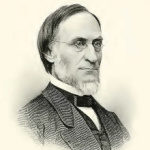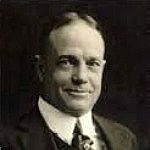Quotes about Repentance-Deathbed
The faithful and laborious clergyman of a very large and populous parish had been accustomed, for a long series of years, to preserve notes of his visits to the afflicted, with remarks on the outcome of their affliction – whether life or death, and of the subsequent conduct of those who recovered. He stated, that, during forty years, he had visited more than two thousand people apparently drawing near to death, and who revealed such signs of penitence as would have led him to indulge a good hope of their eternal safety – if they had died at that moment. When they were restored to life and health – he eagerly looked that they should bring forth fruits fit for repentance. But alas! Of the two thousand, only two people manifested an abiding and saving change! The rest, when the terrors of eternity ceased to be in immediate prospect, forgot their pious impressions and their solemn vows – and returned with new avidity to their former worldly mindedness and sinful pursuits, “as the dog returns to its vomit again, and as the sow that was washed to its wallowing in the mire.”
Even the stoutest sinners will hear us on their death-bed, though they scorned us before. They will then let fall their fury, and be as gentle as lambs, who were before as untractable as lions. I find not one in ten, of the most obstinate scornful wretches in my parish, but when they come to die, will humble themselves, confess their faults, and seem penitent, and promise, if they should recover, to reform their lives.
Though true repentance is never too late, yet late repentance is seldom true.
A Puritan Golden Treasury, compiled by I.D.E. Thomas, by permission of Banner of Truth, Carlisle, PA. 2000, p. 241.
No man ought to flatter and deceive himself in deferring his conversion by alleging the example of the penitent thief, saved even at the last hour upon the cross, and carried to Paradise that same day with Christ, for this act was a special miracle, reserved for the manifestation of Christ’s power and glory at that hour upon the cross; and, besides, this act was upon a most rare confession made by the thief at that instant when almost all the world forsook Christ.
A Puritan Golden Treasury, compiled by I.D.E. Thomas, by permission of Banner of Truth, Carlisle, PA. 2000, p. 241.
Genuine repentance is not a convenient escape hatch after a weekend or a life of folly. It means admitting specific wrong, recognizing your offensiveness to God, changing course, turning to Christ, and wishing with all your heart you had never made the mistake you now despise.
That All May See Progress by Kevin DeYoung taken from The Hole in Our Holiness by Kevin DeYoung, copyright 2012, Crossway Books, a division of Good News Publishers, Wheaton Illinois 60187, www.crosswaybooks.org, p. 141.
There be few at all saved…and fewest saved this way.
A Puritan Golden Treasury, compiled by I.D.E. Thomas, by permission of Banner of Truth, Carlisle, PA. 2000, p. 66.
The Bible, which ranges over a period of four thousand years, records but one instance of a death-bed conversion (the penitent thief) – one that none may despair, and but one that none may presume.
A Puritan Golden Treasury, compiled by I.D.E. Thomas, by permission of Banner of Truth, Carlisle, PA. 2000, p. 66.
No man ever repented on his deathbed of being a Christian.
We must never forget the thief of the cross (Lk. 23:39-43). He is often used as an encouraging example of a deathbed conversion, but certainly much more is involved. Instead of seizing his last opportunity to be saved, perhaps it was his first opportunity! And think of the courage needed to confess Christ openly before that derisive mob. However one interprets the passage, one thing is clear: where there is life, there is hope. We never know what transpires between the soul and God as that soul is about to enter eternity (Warren Wiersbe and David Wiersbe).
I dare say you are planning on a late repentance. You do not know what you are doing. You are planning without God. Repentance and faith are the gifts of God, and they are gifts that He often withholds, when they have been long offered in vain. I grant you true repentance is never too late, but I warn you at the same time, late repentance is seldom true. I grant you, one penitent thief was converted in his last hours, that no man might despair; but I warn you, only one was converted, that no man might presume.
A false confidence in those words, “the eleventh hour,” has ruined thousands of souls.
I know that people are fond of talking about deathbed evidences. They will rest on words spoken in the hours of fear, and pain, and weakness, as if they might take comfort in them about the friends they lose. But I am afraid in ninety-nine cases out of a hundred such evidences are not to be depended on. I suspect that, with rare exceptions, men die just as they have lived.
It is common to hear people saying on their deathbeds, “I only want the Lord to forgive me my sins, and take me to rest.” But those who say such things forget that the rest of heaven would be utterly useless if we had no heart to enjoy it! What could an unsanctified man do in heaven, if by any chance he got there? Let that question be fairly looked in the face, and fairly answered. No man can possibly be happy in a place where he is not in his element, and where all around him is not congenial to his tastes, habits, and character. When an eagle is happy in an iron cage, when a sheep is happy in the water, when an owl is happy in the blaze of noonday sun, when a fish is happy on the dry land – then, and not till then, will I admit that the unsanctified man could be happy in heaven.
Deathbed repentance is burning the candle of life in the service of the devil, and then blowing the smoke into the face of God.
Those who wait to repent until the eleventh hour often die at ten thirty.








